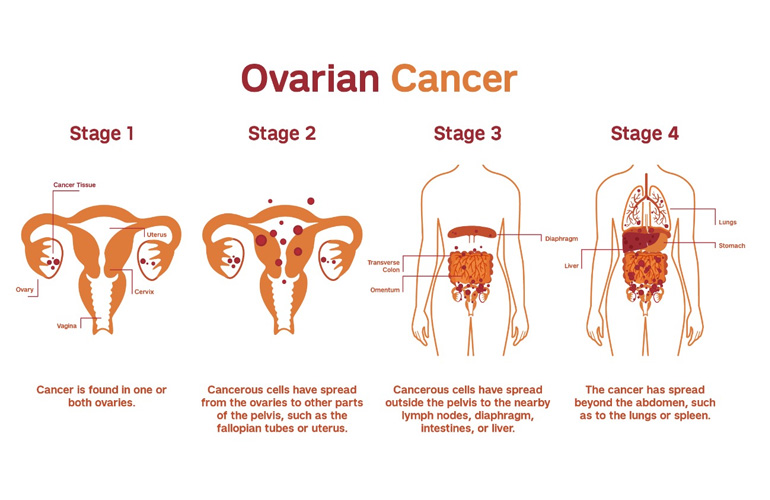Ovarian Cancer
Ovarian cancer is cancer that develops in the female organs that produce eggs—the ovaries. It is the third most common cancer seen in women in India after cervical and breast cancer. 85-90 per cent of women with ovarian cancer are over 40 years of age with the peak incidence between 55 and 65 years of age.
Symptoms of Ovarian Cancer
Cancer occurs when cells in an area of the body grow abnormally. Ovarian cancer is the seventh most common cancer among women.
- Bloating
- Pelvic or abdominal pain
- Difficulty eating or Feeling full quickly
- Loss of weight
Stages of Ovarian Cancer
- Stage I: Cancer is found in one or both ovaries
- Stage II: Cancer has spread to other parts of the pelvis
- Stage III: Cancer has spread to the abdomen
- Stage IV: Cancer is found outside the abdomen
What kind of treatments are available for ovarian cancer treatment in Delhi?
Ovarian cancer is most often treated with surgery and chemotherapy. Only rarely is radiation therapy used. It is important to distinguish between early stage ovarian cancer and advanced disease because the treatment depends upon your stage grade and performance score
Surgery is usually the first step in treating ovarian cancer. Most surgery is performed using a procedure called a laparotomy during which the surgeon makes a long cut in the wall of the abdomen.If ovarian cancer is found, the following procedures are performed
Primary cytoreductive surgery or Interval Debulking encompasses removing the bulk of tumor, removal of uterus, both tube and ovaries, omentum, pelvic and para aortic nodes. Sometimes chemotherapy might be needed before surgery, this is called neoadjuvant chemotherapy.
Sometimes the surgery is extensive,and includs removal of portions of the small or large intestine and removal of tumor from the liver, diaphragm and pelvis. Removal of as much tumor as possible is one of the most important factors affecting cure rates. If you have early Stage I cancer, and still hope to get pregnant, it may be possible to only remove one ovary and fallopian tube. Your future pregnancy wishes should be discussed with your oncologist

